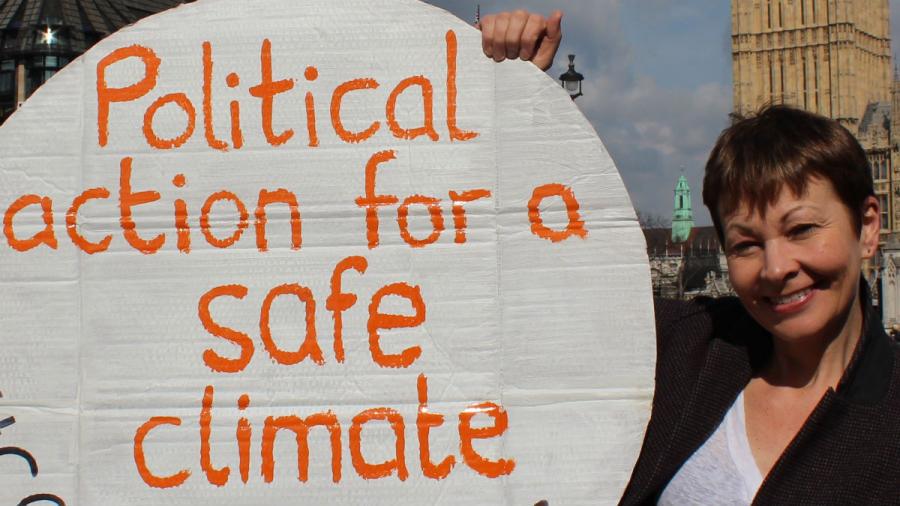These were the words from leading climate scientist James Hansen, at the Paris climate talks yesterday. When asked what he thought about the UK Government’s determination to push ahead with fracking, regardless of the wishes of local communities, he replied:
“Well, that’s screwing your children and grandchildren. Because if you do that, then there’s no way to avoid the consequences [of] multi-metre sea-level rise. But we can’t do that. And that’s what the science says crystal clear. And yet politicians pretend not to hear it, or not to understand it.”
With detailed negotiations on the text of the Paris climate agreement well underway, these comments highlight two key issues, which go to the core of today’s official theme: ‘Young and Future Generations Day’.
Firstly, they reveal the brazen hypocrisy of the UK’s Prime Minister, who said, in his speech at the start of the climate talks, that: “Instead of making excuses to our children and grandchildren, we should be taking action”.
However, its deeds not words matter the most when it comes to tackling climate change. Here in the UK, there’s an ever-growing list of policies taking us further away from any hope of securing a safe climate for our children and grandchildren.
The Prime Minister’s track record so far is a high-carbon catastrophe: slashing support for solar and onshore wind; cancelling tax relief for community-owned renewable energy; increasing fossil fuel subsidies; pushing ahead with fracking; creating a new legal duty to maximise oil and gas extraction; cancelling zero carbon homes; and cutting funding for cycling, walking and public transport - whilst spending billions on new road building and subsidising short-haul flights…
Instead, political leaders should listen to young people - and others - who’re calling for all countries to commit to going 100% renewable by 2050. The UK should aim to get there faster – given our wealth, our historical responsibility for carbon emissions, and our rich, accessible renewable energy resources.
Secondly, James Hansen’s comments reminds us that tackling climate change is about intergenerational justice - what sort of world we are prepared to leave to our children and grandchildren?
The decisions and actions we take today will determine that. We are the first generation to feel the effects of climate change, but the last generation that can take action to prevent those impacts becoming unmanageable.
Young people, alongside a group of countries most vulnerable to the impacts of climate change, are providing shining lights of leadership from the Paris conference.
They've issued a strong call for full decarbonisation of the world economy, 100% renewable energy by 2050, and zero emissions by mid-century in order to keep the world on track for below 1.5 degrees of warming. These are the scientifically robust, fair and equitable goals we should be seeking.
Whilst the campaign to kick fossil fuel companies out of the climate conference continues, it’s worth remembering that there are some business voices backing this level of ambition too.
Recognising that climate change is about intergenerational justice is also important because it challenges us to address the exclusion of young people from politics and decision making. Politicians must listen more to the views of young people. But that’s not enough. We need new ways to increase their influence.
One proposal, put forward by Mary Robinson’s Climate Justice Foundation, is for a Commission for Future Generations to be established in the UN system. We should push for something similar at Westminster too.
At Sunday’s inspiring climate demonstration in London, one huge banner, carried by group of energetic young people, dancing and shouting despite the drizzle, read: “How old will you be in 2050?”.
That’s a crucial question that politicians making short-term decisions that perpetuate our reliance on fossil fuels and delay the transition to renewable energy should ask themselves.
Caroline’s speech at the London climate march on Sunday is available here.
Caroline’s contribution to the House of Commons debate on the Paris climate change conference, just before the talks started, is available on Parliament TV and in written format on Hansard.




Join The Discussion